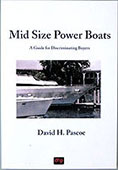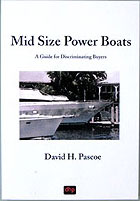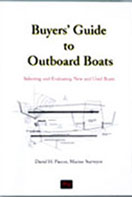Back to The Future of Fuel Prices
The Iranian Spectre
by David Pascoe
Posted September 27, 2006
This and other three texts below contain short summaries on the status of the nation states that now have, and will in the future, the greatest effect on oil prices. They have been kept separate from the body of the report The Future of Fuel Prices because they are essentially political in nature.
Iran is unquestionably the world's top boggyman at the moment. And though the nuclear threat is serious, it is essentially unknown (at least publicly) just how serious it is. However, there can be little doubt but that much of her sabre-rattling is directed at driving up the price of oil based on speculative fears. Indeed, this has for a time worked nicely.
Iran is said to be No. 2 in world oil reserves, even by our own Department of Energy, which accepts OPEC numbers at face value. There is much evidence to cast grave doubt on this assessment. Iran and its oil industry are in deep trouble. The last reliable survey of Iranian reserves occurred in 1974 prior to the Islamist take-over which placed reserves at 62 billion barrels. Since then the number has been increased to 132 billion with virtually no evidence to support any of these increases; these are simply the numbers claimed by Iran to OPEC, used to support its OPEC quota allowance.
Iran's oil industry was badly damaged in its war with Iraq. To this day much of that damage has not been repaired. The ruling mullahs essentially control the oil production and their ignorance has resulted in severe mismanagement and damage to the oil fields. They continue to pump oil without regard to the damage they do. The mullahs are paragons of paranoia and will not allow any foreign involvement. Therefore, it is widely believed that Iran's existing fields will soon near exhaustion and most are certainly already in decline.
While Iran has tried to attract new capital and investment (as it does not have the resources on its own), its involvement in terrorism and behavior as an international pariah has dissuaded anyone but China from getting involved with them. To the extent that their behavior has only gotten worse, the future of Iranian oil is dark indeed.
The fact that Iranian oil is in decline, combined with her nuclear ambitions, suggests that Iran is seeking territorial expansion, or territorial hegemony at best. And what better way to do that than to seize someone else's oil fields. In this respect, Iraq is a threat to Iran since Iraq could jump ahead of Iran in terms of quotas, and hence revenues, if Iraq gets her terrorist problem under control. Thus, Iran has a strong motivation to foment Shia-Sunni unrest in Iraq, which is undoubtedly part of Iraq's problem.
The Iranian mullahs, through their promotion of terrorism and use of proxies, have largely proved themselves to be timid loudmouths, big on talk but short on action. Their pursuit of nuclear weapons is most likely for the purpose of intimidation and blackmail. For the last 26 years they have proven to be their own worst enemy as every word they speak and every action they take serves only to isolate and impoverish themselves. With oil prices tripling in recent years, they are ebullient, but hardly flush. Their "economy," such as it is, is a shambles. We'll see what effect the dramatically falling oil prices will have on their wagging tongues since oil accounts for 40-50% of their economy.
All the hullabaloo about the Iranian bomb could well be a red herring since no one really knows what they are doing and how well they're doing it. They're shooting off missiles all over the place in a well orchestrated stage play intended to serve as a threat. But if they can't manage their oil fields, their life-blood, there shouldn't be much concern that they'll soon be making suitcase nuclear weapons or ICBM's. In fact, all those TV videos are of missiles that are basically SCUDS with Islamic names.
It is very likely that as prices fall, their sabre rattling will increase in an effort to instill fear into the oil market to drive prices up. As for carrying out threats, they've shown no propensity for doing so in 26 years. They have a well-oiled propensity for using proxies. This only creates a viscous circle for them since the more threatening they are, the less likely they are to obtain any capital (or expertise) to improve their declining oil production. Even the Chinese will be inclined to back off should Iran threaten the Persian Gulf shipping lanes. Yet, their declining production could serve as a motivation to do something foolish, but I don't see use of a nuclear weapon as being one of them.
As for bombing Iran, there is no chance that could happen until well into the first year of a new presidency. George Bush isn't about start another war.
The Most Serious Iranian Threat
It is little remembered and never mentioned in the media that the U.S. fought a brief naval battle with Iran in the Persian Gulf in 1987 following what was called the tanker wars. The later occurred between Iraq and Iran in the period 1984-88 when the two warring nations conducted war on Gulf shipping, sinking 128 oil tankers and other merchant ships. In 1987 when Gulf oil was severely threatened, President Reagan offered to Kuwait to reflag their tankers under the US flag and escort them through the Gulf. Iran at that time was mining the Gulf. A number of escorted tankers hit mines followed by an attack by Iraqi aircraft on the USS Stark with Exocet missiles. Thirty-seven US seamen were killed. The object of all this was both sides seeking to cut off all oil shipments by the two combatants.
Reagan retaliated by destroying two major Iranian offshore oil platforms. In April, 1988 the USS frigate Samuel B. Roberts, escorting an oil convoy, struck an Iranian mine, badly damaging the ship. In an operation designed to provoke Iran, Navy SEALS destroyed two more major oil facilities, producing the desired results. The Iranian navy launched an attack on elements of a US carrier group. The result was the destruction of eight Iranian warships in a single day. After that Iran decided it was a no win situation and ceased hostilities.
The point of this bit of history is that Iran knows very well how easily it can stop all shipping on the Gulf. It has an obviously well developed plan to use the Strait of Hormuz (34 mi wide at narrowest point) as a choke point, demonstrated by known radar installations and missile emplacements. Iran has geographic strategic control of the Straits by virtue of its unique shape. Iran, Iraq, Saudi Arabia, Kuwait, Qatar and the UAE all export oil through the Gulf, equal to about 40% of M.E. oil exports. Iran's Supreme Leader Ayatollah Ali Khamenei warned last month (8/06) that oil exports in the Gulf region could be seriously endangered if Washington made a wrong move over Iran.
Since the tanker war the US has often publicly made promises to protect the Gulf. If any kind of shooting war begins with Iran, it will surely erupt at this point. A quick analysis of Iran's potential for shutting down the Gulf oil shipments suggests that the US would have a tough time destroying Iran's shipping threat. Intelligence sources indicate that Iran has well conceived plans to do just that.
The net effect on oil prices of such an event would only be temporary, as any action by Iran would attract several carrier groups with swarms of aircraft. Iran's geography in this area is entirely desert, but it would still take at least a month to destroy Iran's threat to oil shipping.
- The Iranian Spectre
- Iraq
- Venezuela
- China & India
Back to The Future of Fuel Prices
Posted September 27, 2006
 Visit davidpascoe.com for his power boat books
Visit davidpascoe.com for his power boat books David Pascoe - Biography











David Pascoe is a second generation marine surveyor in his family who began his surveying career at age 16 as an apprentice in 1965 as the era of wooden boats was drawing to a close.
Certified by the National Association of Marine Surveyors in 1972, he has conducted over 5,000 pre purchase surveys in addition to having conducted hundreds of boating accident investigations, including fires, sinkings, hull failures and machinery failure analysis.
Over forty years of knowledge and experience are brought to bear in following books. David Pascoe is the author of:
In addition to readers in the United States, boaters and boat industry professionals worldwide from nearly 80 countries have purchased David Pascoe's books, since introduction of his first book in 2001.
In 2012, David Pascoe has retired from marine surveying business at age 65.
On November 23rd, 2018, David Pascoe has passed away at age 71.
Biography - Long version